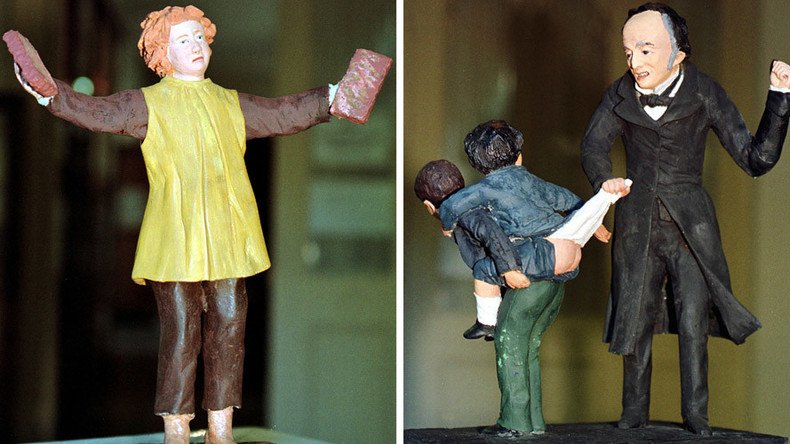That’s a paddlin’: Alabama still spanking kids, gender & race gaps persist

The year is 2016, and there are still schools in the US that believe hitting children on the rear with paddles is an acceptable form of punishment. In fact, 19,000 students were paddled in the 2013-2014 school year, according to newly-released data.
There are 19 states in the country that allow teachers to administer corporal punishment, but Alabama seems to have the highest batting average. In fact, a student is spanked every four minutes in the Yellowhammer State, according to the Alabama Enquirer.
The use of corporal punishment in Alabama has not been battled out in the courts like one would imagine, or at least not since the Supreme Court upheld the right for public schools to use corporal punishment in 1977. As a result, generations of Alabamians have grown up being paddled.
"As a child paddled, and as a parent who paddled, I've not experienced the negative side of corporal punishment personally, only the positive side," Alabama House Rep. Terri Collins (R-Decatur), chair of the Education Policy committee, said in a statement.
But what are the positives to paddling? Well, no studies have found any – quite the contrary, in fact. A report from UNICEF found that corporal punishment actually diminishes the likelihood of a child succeeding in a school setting.
In a study titled Violence Against Children in the Home and Family, UNICEF declared “Corporal punishment is a predictor of depression, unhappiness and anxiety.”
READ MORE: Spare the rod: Georgia principal paddles 5 year old, mom captures video
The study also attributes it to increasing the likelihood of engaging in risky behaviors, such as smoking cigarettes. While that may sound alarmist, the American Psychological Association and the American Academy of Pediatrics both discourage using corporal punishment on children, citing similar reasoning.
However, the most efficient summary of the adverse effects of paddling comes from the Global Initiative to End All Corporal Punishment of Children. While they may not be the most impartial sounding group, they offered this note:
"Instead of helping children to develop the desire and motivation to behave well of their own accord, corporal punishment teaches children that it is desirable not to get caught: rather than behaving differently next time, they are therefore likely to repeat the undesired behavior and use strategies to avoid being caught."
Gender and race play into the politics of paddling as well. The data found that boys are more likely than girls to be paddled, while African-American girls made up nearly half of the girls that were paddled. For boys, black and biracial males accounted for 35 percent of paddling, despite only constituting 24 percent of the public school population.
On the bright side, the rates of paddling have decreased from 40,000 in 2000 and have been on a general downward trend, according to the Alabama Enquirer.
Hero driver saves 20 kids from burning school bus, says "It's my job"
— RT America (@RT_America) September 13, 2016
Read More: https://t.co/2LyxQX91ovpic.twitter.com/cx3X6zmR4y












